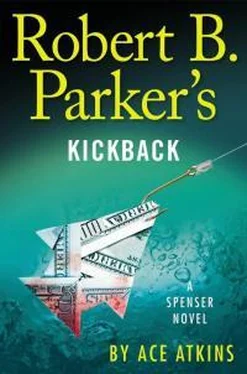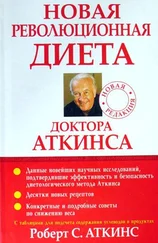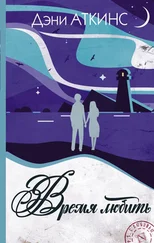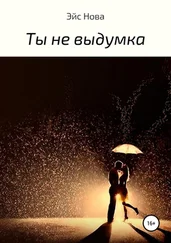“Would you like coffee?”
“I don’t want to make you any later.”
“You said you wish to talk about Jim.”
“Yes.”
“Then my appointments can wait,” she said. “If I acted rude, please excuse me. I wasn’t expecting anyone.”
“No apology necessary.”
“You’re the one who left the business card?”
“Yes, ma’am.”
“I was happy to invite you in,” she said. “But if you call me ‘ma’am’ again, I’ll strike you with a fire poker.”
“Yikes.”
There was a hint of a smile. She wore a black turtleneck sweater and charcoal slacks. We were of different generations but I couldn’t help but notice she was a very attractive woman. Thirty years ago, she must’ve been a knockout. I didn’t know a nice way of saying that, so I kept my mouth shut and waited for her to return with the coffee.
She had her chair, high-backed and well used, close to the fire, with a woven blanket folded over the back and a book in the seat. After a few minutes, she returned with two cups of coffee on a silver serving tray and set them down on a table. The fire popped and the logs hissed.
She removed the book and sat. Her hair was long for a woman her age, with a portion pinned back and most lying on her shoulders. She had prominent cheekbones and gray eyes that watched me as I added a little sugar. I’d recently stopped with the cream. Every little bit counts.
“I work for a woman whose son was sentenced to a juvenile camp by Judge Scali,” I said. “The sentencing was harsh and unfair. In the course of my work, I found out your late husband may have raised similar questions.”
“And where did you hear that?”
“From a woman named Iris Milford with The Star ,” I said. “She told me your husband had been a source for her before he died.”
She had not added any milk or sugar to her coffee. The steam curled and dissipated off the mug while the fire glowed and popped. “I wish she hadn’t told you that.”
“She wouldn’t have, but knew it was important.”
“What did the young man do?”
“He made some jokes about his vice principal on the Internet,” I said. “They weren’t exactly high-brow. But they weren’t the kind of thing that needed the attention of a cop.”
She nodded, stared at me with her gray, hooded eyes, and bit the inside of her cheek. I downed some more coffee. I was pretty sure she was weighing the odds of shutting down altogether. The mantel clock ticked off more time.
“Joe Scali is an immoral, soulless bastard,” she said.
Hot damn. I tried not to show my excitement. I leaned forward on the sofa. The bright light from outside was blocked by a pair of heavy dark green curtains.
“As you know, Jim was appointed to family court,” she said. “He held that position for more than twenty years.”
“And his connection with Joe Scali?”
“The whole mess started by a very honest, straightforward inquiry,” she said. “Jim and Joe Scali shared the same budget. Three years ago, Jim was told he’d have to go to the county for more funding for his programs. He didn’t care to go hat in hand.”
“What kind of programs?”
“His budget included counseling for parents who didn’t want to lose their kids and for placement of kids into foster homes,” she said. “He’d never had to ask for additional funding. This was all new. The next year, the same thing happened. Some administrators made innuendos about Jim’s budget, which was laughable. These were all good and fair programs. Nothing had changed as far as the caseload.”
“Scali was eating it up.”
She nodded. “Jim found out that Joe Scali’s sentencing had increased tenfold.”
“Wow,” I said.
“One would think,” she said. “But Joe Scali came along at the right time, in the time of school shootings, to become the Zero Tolerance Judge. You know he liked to be on cable news shows and loved to give speeches to students. He became immersed in cultivating his own celebrity.”
“A real rah-rah guy.”
“Jim made complaints about the ethics of what Scali was doing,” she said. “He knew a lot of kids were being railroaded into a system where they had no business. Not to mention the children were being placed in new private facilities. Some might argue the private prisons were better for the kids, but the costs were astronomical.”
“To whom did he make the complaints?”
“The presiding district judge,” she said. “You know Gavin Callahan?”
“No.”
“He’s the top bastard,” she said. “If you’re looking for that kind of thing.”
“Top bastards are my business.”
“He and Joe Scali are lifelong friends,” he said. “Callahan is the one who first appointed Joe Scali, although Scali hadn’t been out of law school but a few years. This is a dirty town with a lot of dirty ways of doing business. No one even seemed to notice. Jim didn’t make a fuss until someone was tampering with his budget. He liked to help people. He believed in his work.”
She swallowed and sat a bit straighter to compose herself. She stood up quickly, grabbed my nearly empty cup, and walked back to the kitchen. For lack of anything better, I stood and poked at the fire a bit, sending embers up into the chimney and into the frigid air.
When she came back into the room she brought a framed photograph of a smallish man with a lot of gray hair, wearing big black glasses and dressed in a black robe. It was an official-looking portrait taken among a lot of law books.
“Have you ever lost anyone, Mr. Spenser?” she said. “Someone you loved dearly and without whom you could not imagine your life going on?”
“No,” I said, not wishing to linger on the thought.
“I would imagine an amputation may be more pleasant,” she said. “We have three boys. I have nine grandchildren. We weren’t always happy, but the final few years were very happy. Jim took care of himself. He did not smoke and drank in moderation. He ran two miles five days a week. He would not touch red meat, cheese, and processed food. What happened to him makes no sense.”
“He had a heart attack.”
“He was killed,” she said. “It may have come from a natural cause, but Scali and Callahan couldn’t be more pleased. As soon as Jim started asking questions, Callahan had him demoted to traffic court. It was a power play to make Jim quit. But Callahan underestimated Jim. He did not quit. He did not retire. He kept on the job. That should have been enough for them.”
The room was an enclosed pocket of silence with the draperies and the darkness and the crackling fire. I waited for her to finish.
“Callahan accused him of taking money in traffic court,” he said. “He cited two thousand dollars. Can you imagine something so petty? It was almost laughable. We fought it. Jim became obsessed with the machinations in this rotten town. He told me he had something on Callahan and Scali that would vindicate him.”
“And did he?”
“I don’t know,” she said. “He went to work one morning, suffered a massive heart attack in chambers, and I never saw him again.”
“I’m very sorry.”
“I wish I could be of more help.”
“You’ve helped a great deal.”
We walked to the front door and out to the walkway. Everything was covered in a fine powder of snow, blinding white in the harsh morning light.
“There was a man in Boston he was speaking with,” she said. “He was with some kind of state agency that oversaw budgets for family courts. I don’t know his name or the agency.”
“Maybe I can find him.”
“These two are the worst,” she said. “No one questions them. No one wants to know more. They’ll ruin anyone who opposes them.”
Читать дальше







![Дэни Аткинс - Время любить [litres]](/books/401165/deni-atkins-vremya-lyubit-litres-thumb.webp)




